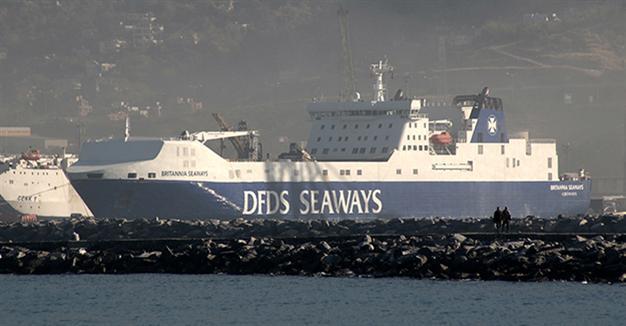German patriot missile defense systems leave Turkey
HATAY – Anadolu Agency

AA Photo
Germany has withdrawn its Patriot missile systems from Turkey, three years after bringing them in to contribute to the defense of Turkish airspace from possible threats from Syria.
All parts of the German patriot air missile defense systems have been loaded on a Danish ro-ro ship named “Britannia Seaways,” 24,613 gross tons and 197 meters-long, which was anchored at the İskenderun port in Turkey’s south.
The German government announced earlier this year that the patriot defense system was set to be withdrawn as its term would terminate early January 2016.
The patriot systems were demounted from Turkey’s southeastern province of Kahramanmaraş, where it was positioned for three years, and carried to the İskenderun district of Hatay. At the port, the Danish ro-ro ship waited at the port for around 10 days to take the defense system that is composed of 380 parts, according to Doğan News Agency.
The ro-ro ship left the İskenderun port on Dec. 22 en route to Germany, also carrying 250 German military officers aboard who had been stationed in Kahramanmaraş to operate the system.
The German patriot was deployed to the Gazi Barracks in Kahramanmaraş in January 2013, after Turkey’s appeal to NATO, against missile attack threats from Syria.
A military ceremony marking the term end of the patriots was held at the barracks last month.
Currently, the only patriot batteries stationed in Turkey are Spain’s, which are located in the southern province of Adana.
Initially, the Dutch, U.S. and German missile systems were stationed in early 2013. Spanish patriots replaced the Dutch systems early 2015.
Spain agreed to extend its patriot surface-to-air missiles along Turkey’s border to shoot down any missiles from Syria’s conflict fired into Turkish territory.
In order to strengthen Turkey’s defense of its border with Syria, NATO allies agreed on Dec. 18 to send aircraft and ships to the country.
Due to be assembled in the coming weeks, the package will include NATO’s AWACS surveillance planes and what NATO Secretary-General Jens Stoltenberg described as “enhanced air policing, and increased naval presence including maritime patrol aircraft.”
The ships will be provided by Germany and Denmark, which are exercising in the eastern Mediterranean.
